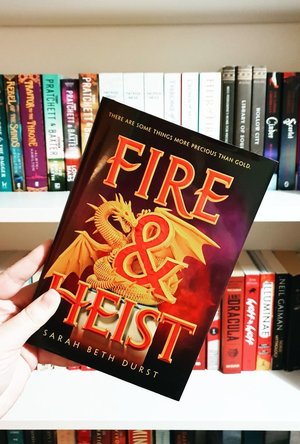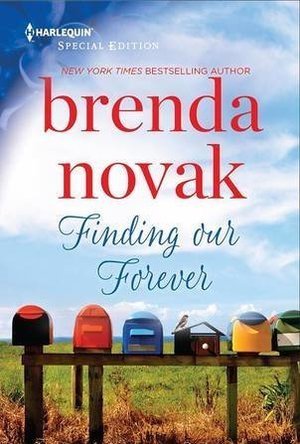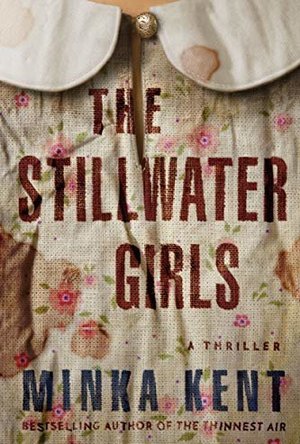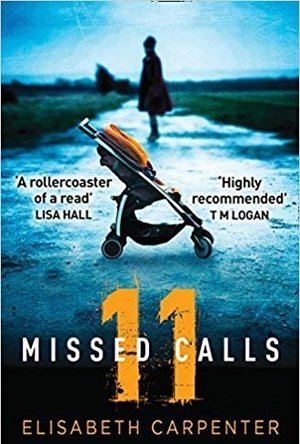
Sin (Salvation #1)
Book
My preacher father named me Sin because he claimed I was born bad. He must be right. There's not a...
Contemporary Dark MM Romance Content Warnings Homophobia religious bigotry
Goddess in the Stacks (553 KP) rated Fire and Heist in Books
Apr 2, 2019
We open on Sky, sixteen, rattling around her mansion, dealing with her now dysfunctional family of three brothers and their father. Her mother went missing not very long ago, during a heist. The kids have been told she's gone, she's alive, she's not coming back, and to drop the matter. Were-dragon society almost exiled all of them for whatever their mother got into, so they're all on thin ice. Sky, of course, is having none of this. When she stumbles on a lead for where her mother went, she pursues it, and learns all kinds of secrets.
The book was okay, I suppose. I was a little appalled at were-dragon society, and that the dragons just - bow to the authority of the Council. Dragons should have more spine. The heist part was pretty cool, with Sky and her friends figuring out how to take apart every layer of security piece by piece.
I don't know. It was a fluffy book, but not a feel-good book, and I just wasn't that enthused.
You can read all my reviews at http://goddessinthestacks.com
Whatchareadin (174 KP) rated Finding Our Forever (Silver Springs, #1) in Books
Apr 9, 2019
While I have many Brenda Novak books on my Kindle, this is the first of her titles that I have actually read. I was drawn to this book initially because of its setting of Silver Springs, the town I live in is called Silver Spring. I was even more drawn to the book by the characters because I have members of my immediate family with similar names to the characters in the book.
Cora Kelly was adopted 28 years ago. Since that time she has been on a quest to find her mother and find out why. She loves her adoptive parents wholeheartedly, but still has a desire to know where she comes from. Her birth mother was at a reasonable age to keep a child, 21, so what were the circumstances that made her decide that adoption was the best idea, especially since in her investigation she finds out that her birth mother has adopted several children over the years.
This was a very compelling story. It drew me in immediately and I couldn't put it down. I read it in just a few hours over a couple of days. I can't imagine what it would be like to not know your birth parents. And then searching your whole life to find them, with a closed adoption. In Cora's quest to find all this information, she falls in love and faces conflict with her adoptive parents. It's a great story for everyone who likes a little romance in their lives.
Billie Wichkan (118 KP) rated The Stillwater Girls in Books
May 22, 2019
Ignorant of civilization and cautioned against its evils, nineteen-year-old Wren and her two sisters, Sage and Evie, were raised in off-the-grid isolation in a primitive cabin in up-state New York. When the youngest grows gravely ill, their mother leaves with the child to get help from a nearby town. And they never return.
As months pass, hope vanishes. Supplies are low. Livestock are dying. A brutal winter is bearing down. Then comes the stranger. He claims to be looking for the girls mother, and hes not leaving without them.
To escape, Wren and her sister must break the rule they've grown up with: never go beyond the forest.
Past the thicket of dread, they come upon a house on the other side of the pines. This is where Wren and Sage must confront something more chilling than the unknowable. Theyll discover whats been hidden from them, what theyre running from, and the secrets that have left them in the dark their entire lives.
This was my first novel by Minka Kent and it was quite a suspenseful story.
The chapters switched between two characters which was good as well.
Wren, Sage and Evie are three sisters and their mother has been raising them in the forest away from all of civilization.
This is a great story that will have you on the edge of your seat from the first chapter. Very well written.
Loved the plot and the pace. Characters were very believable.
The ending is such an unexpected twist.
Will definitely be reading more from this author.
Highly recommend.
Thank you Thomas & Mercer and NetGalley for a copy of The Stillwater Girls. I voluntarily read and reviewed this book
Sassy Brit (97 KP) rated 11 Missed Calls in Books
Jun 5, 2019
Is their mother dead, or is there another reason she walked out of their lives for good? Would you forgive your mother if she did that to YOU?
OMG! If you love books about dysfunctional families and all the drama that attracts, you should really enjoy this one. Honestly, if you think your family were crazy, try this one; They’ll suddenly look like saints and you’ll feel so much better about your life for reading this!
Carpenter captured both Debbie’s and Anna’s characters (and what they each went through), very well. I totally did not see that ending coming and I was convinced I had all the answers, right up until the very end. I also got really involved for Anna’s plight for answers, and felt for how lonely she was when she finds her husband’s love letter from another woman, which ingeniously added another twist to this family drama. Despite the holiday in Spain’s Canary Islands, this book has a very British feel to it, which stands to reason as both the author and setting are based in the north of England and it can be quite grim (weather-wise) up North! Overall this was an entertaining read, rife with family secrets, lies and surprises!
And a touch of bad weather, too.
Kristy H (1252 KP) rated The Same Sky in Books
Feb 13, 2018
The Same Sky tells the story of two unique individuals. The first is Alice, a forty-year-old living in Texas, with her husband. Together, they run a successful BBQ restaurant and appear incredibly happy. But they've been through a long and sad string of infertility, and Alice is left empty by the latest episode - a birth-mother taking back a baby promised to her, after Alice spent the night with the baby she thought was going to be hers.
Alice's chapters alternate with those of Carla, a young girl in Honduras. Carla's mother leaves for America early in the story, leaving Carla with her grandmother and one of her younger twin brothers. Carla's voice is just amazing. Ward captures this young teenager perfectly. I'm not sure how you can read this book and not fall completely for Carla. There are times when I didn't completely love Alice, or when I wanted to shake her, but Carla - I just wanted to hug her and take her home.
As you read the novel, Alice and Carla's stories are completely separate, which is fascinating. They provide an intriguing commentary on our society and the American Dream -- Alice seems to have it all in America, but she feels empty due to her childless state. And Carla wants nothing more than to come to America with her mother.
I simply loved the book - I won't give away any more of the plot, but it was well-written and beautiful. I don't think you could be disappointed in reading The Same Sky - I give it 4.5 out of 5 stars.
(Note: I received an advanced copy from Netgalley in return for an unbiased review.)
Hazel (1853 KP) rated White Petals in Books
Dec 17, 2018
First her father died, then her Nana, and to top it all off her mother has been placed in a psychiatric hospital. Life for Emmeline Rose has not been easy but the unfortunate circumstances are going to lead her to the discovery of a secret gift. In this young adult novel, <i>White Petals</i>, Maria Grace creates a heartwarming tale of grief, friendship and fantasy.
Fourteen-year-old Em has been placed in a children’s home whilst her mother recovers from a psychotic breakdown. Here she begins to make friends with some of the other children, however she finds herself being bullied at school. Yet, what she cannot understand is why she gets a painful ringing in her ears whenever the school bully is around. But when her mother starts explaining mind-boggling things about their family, things start to make more sense.
The novel is a first person narrative therefore everything is shown from Em’s point of view. This, however, results in the story sounding like a young teenager has written it, which can be rather annoying. On the other hand, this aspect helps relate to the intended target audience.
The biggest issue with <i>White Petals</i> is the way mental illness is described. Phrases such as “off her tree”, “crazy”, “psycho” and “nutter” are frequently used throughout the narrative. Mental health stigma is a growing problem that many charities and organizations are challenging. Although many teenagers may genuinely think this way due to a lack of understanding, there is no attempt in this book to contradict these beliefs and educate the reader.
Overall I personally do not think this book is anything special, however many teenagers may enjoy the humour some of the characters bring to the story. Each chapter is headed by illustrations that were the result of a competition held in Wales for eleven to eighteen year olds. Despite certain misgivings, the story was still interesting to read.
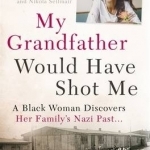
My Grandfather Would Have Shot Me: A Black Woman Discovers Her Family's Nazi Past
Jennifer Teege, Nikola Sellmair, Carolin Sommer and Adjoa Andoh
Book
'A powerful account of Teege's struggle for resolution and redemption.' Independent An international...

Never Have Your Dog Stuffed
Book
He's one of America's most recognisable and acclaimed actors - a star on "Broadway", an Oscar...

Spiritual Insights w/Charlotte Spicer—Spirituality & Metaphysics Talk Radio
Podcast
We honor your presence here! Join over 200,000 listeners worldwide who tune in for inspiration and...
